- Home
- Michael McBride
Burial Ground Page 5
Burial Ground Read online
Page 5
"What I know is that you're about two minutes from being manhandled by campus security." He picked up the handset and dialed.
The man casually crossed the room, sat on the edge of the desk, and depressed the button on the phone to disconnect the call before it even began to ring.
"Perhaps I should have started with an introduction." The man smiled, though he still held his finger in place. "My name is Marcus Colton. I work for Leonard Gearhardt and Advanced Exploration Associates International. These feathers were found in the Amazonas Province of Peru just under two weeks ago by Mr. Gearhardt's son. We're putting together an exploration party to locate and excavate the region where we assume the younger Mr. Gearhardt discovered the feathers." He released the button on the phone and the dial tone droned in Galen's ear. "We leave in the morning."
"What does this have to do with me?"
"We don't know precisely where the feathers of this particular species might have been found."
"Why not ask the younger Mr. Gearhardt?" Galen immediately regretted his mocking tone.
"Unfortunately, he is no longer with us. He died before he could share this knowledge with anyone."
"That still doesn't answer my question. What do you want from me?"
"Dr. Russell, from 1985 through 2001, you worked extensively in the field tracking and studying birds in the wild. Thanks in large measure to your efforts in conservation, nearly a half dozen species of raptors have been placed on the Threatened Animals List and significant portions of their natural habitats declared preserves and conservatories. You understand these creatures: their behavior patterns, their relationships to their environment, their lifecycles. Your knowledge would be invaluable in helping us find the proverbial needle in the haystack. We're looking for one specific location in the middle of a vast section high in the unexplored Peruvian Andes, and being able to identify the natural range of this species will significantly shrink the amount of ground we need cover. You will be very generously compensated for your expertise, but more importantly, when you eventually admit what we both already know, you'll be the first to classify and study this new species. You'll have the opportunity not only to publish potentially revolutionary findings, but you'll also be able to name it."
"I can't just up and leave my post. The university---"
"We've already made arrangements with the university to secure your services."
"I haven't worked in the field for close to a decade..."
"It's in your blood, Dr. Russell."
Galen felt himself waffling. The prospect of actually working in the field again was both exciting and mortifying. What if his skills had atrophied? What if he traveled halfway around the world and couldn't help them find what they were looking for? He locked eyes with the man across the desk, whose expression betrayed nothing. If there was a chance of discovering a new species that had somehow existed in complete isolation without being found for thousands of years, then he owed it to himself to take it. Even more exciting was the prospect that this could be a recent evolutionary offshoot of an existing species. If he could somehow identify the environmental factors that had triggered such a change and localize the genetic factors that facilitated it, he could advance evolutionary theories that would surpass anything Darwin had even dreamed of.
"Did I mention there will be a film crew tagging along to document our journey?" Colton asked. "Hence the necessity to involve only the leaders in their respective fields."
Galen ran his fingers through his hair.
Colton smiled like a cat that had finally cornered a mouse.
"I'm going to need time to procure the proper supplies."
"You have until tomorrow morning," Colton said. He reached into the inner breast pocket of his jacket, extracted a blue pamphlet, and tossed it down on the desk.
Galen opened it and examined the contents: roundtrip airline tickets from LAX to Lima, Peru.
"I can't possibly be ready in so little time," he said, but when he looked back up, Colton was already gone.
IX
Advanced Exploration Associates International, Inc.
Houston, Texas
October 23rd
6:49 p.m. CDT
Leo opened the file and perused the images for the thousandth time. They had cost him a pretty penny, and the only life that had mattered to him other than his own. The ultimate price had been so steep that to walk away now would be sheer stupidity. Hunter's posthumous message confirmed that he had found what they had known would be there all along. Now it was simply time to claim it as his own.
Satellite prospecting. That's what he called it. Soon there wouldn't be a single inch of the planet left unexplored, a feat that would be accomplished from thousands of miles away. Maybe the technology wasn't all the way there yet, but soon enough they would not only be able to thoroughly map the entire globe, from the deepest oceanic trenches to the most inaccessible mountaintops, but they would be able to discern the composition of the soil and anything buried beneath it. Then the spoils of the planet would be laid bare for men who specialized in creative solutions and high-risk extractions. Men like Leo, or he had hoped, his son.
The anger flared again and he had to grind his teeth to suppress it. This was not the time for emotions, which were a variable he refused to allow into the equation he now scrutinized. This was business, and business was never personal. Once they safely reached their destination, however...
He returned his attention to the image on the computer screen, which reminded him of viewing some sort of rugged object through a microscope, only slightly out-of-focus to soften and blur the edges. He had purchased the services of NASA's Landsat 7 satellite to survey some of the densest unexplored terrain around the world in hopes of finding something special. The satellite had already proven its worth by locating and detailing indigenous ruins throughout the Americas, even beneath otherwise impregnable forestation and several feet of accumulated soil. Where climate and terrain made aerial reconnaissance impossible, Landsat stepped in and worked miracles. It didn't provide mere satellite photographs. Landsat was equipped with an array of remote sensing devices that could focus on areas as small as a few square miles, with pixel sizes of 30 meters, and generate some of the most detailed images imaginable. All Leo had needed to do was provide exact coordinates---and a boatload of cash---and the brain trust at NASA had been able to program the satellite to change orbit and fly over. Granted, it had taken months to wade through the waiting list and coincide the timing with the ideal weather conditions, but the end result had surpassed even his wildest expectations.
He had specifically requested three different types of remote sensing. The standard imaging provided a topographical lay of the land, a generic map of sorts. The multispectral imaging created a precise, color-coded picture based on the absorptive and reflective properties of the minerals in the rocks, soil, and vegetation. And the sonar signals constructed the physical aspects and contours of the ground and upper strata of the soil. Their combined data allowed for the creation of a digital elevation model, a three-dimensional representation of the zone of interest right down to the phosphorous soil beneath a grove of Brazil nut trees.
Unfortunately, his geographical guess hadn't been as accurate as he would have liked.
The map covered a secluded area of roughly twenty-five square miles of steep mountains and sheer canyons separated by close to five thousand nearly vertical feet of lush tropical forest. A blotchy haze eclipsed a good portion of the detail from the cloud cover that clung to the higher ground essentially year round, part of the reason so much of this region remained uncharted. A rainbow of pixellated color dotted the screen, concentrated in some areas and diffused in others. The sides of the grid featured wedge-shaped dead zones, a consequence of the Landsat's scan line correction system malfunction in 2003, where the satellite was unable to accurately rectify the geographical data. On the very edge of one such anomaly was a bright splash of white that reflected a distinct mineral concentra
tion near the summit of a ten thousand-foot peak. The mineral signature was unmistakable, but the size of the lode was indeterminate thanks to the unfortunate cropping.
This was the reason he had sent his son to his death.
"You should probably get some sleep," Colton said. Leo had been so absorbed in thought that he hadn't heard the man enter his office. "We have a long day ahead of us tomorrow."
Leo nodded, but he knew there would be no rest for him tonight. He'd barely slept since he lost contact with Hunter weeks ago anyway.
"I trust all of the pieces are in place," Leo said.
Colton eased into the chair across from him. "As you requested. Dr. Russell's flight will arrive in Lima shortly after ours." He paused. "He's only going to slow us down. He's gone soft as a marshmallow. Are you completely sure he's the best choice?"
"I need to know the significance of the feathers. Hunter wouldn't have packed them, especially if he were abandoning camp under duress, if they didn't have some meaning. I'll carry Russell across the entire Andes range on my back if I have to. If anyone can discover their importance, it's him."
"And this documentary crew? You know how I feel about it. Are you sure toting them along is a good idea?"
"Advanced Explorations owns the principle interest in Four Winds Productions for this very reason. I want everything recorded. This will be Hunter's memorial. And also our cover story. We don't want to draw more attention to ourselves than necessary, especially considering we're potentially dealing with tens of millions of dollars here. Everything needs to be done by the book, and it needs to be documented."
Colton shrugged, but the tight line of his lips betrayed his disapproval.
"I've hand-selected the four men who will be working as our excavation labor," Colton said, changing the subject. "They are all exceptionally well-qualified for their designated tasks." He smirked. "I only hope they can dig, too."
"What about the details of Hunter's death?"
"Other than my guys, no one has any reason to believe it was anything other than an accident."
Leo leaned back and sighed wearily.
"And none of them suspect the true purpose of this expedition?"
"You mean the gold ore?"
"Recovering the gold is a foregone conclusion. We only need to formalize the logistics."
Leo rose from his chair and turned his back on Colton. He could feel the man's stare burning into his back as he surveyed his realm, watching as the distant city lights twinkled into being and the shadow of the coming night settled over the land.
"I intend to find out who's responsible for my son's death," Leo said in the tired voice of an old man. "And then I'm going to kill him."
Chapter Two
I
Pomacochas, Peru
October 25th
3:26 a.m. PET
Merritt knifed down through the wispy clouds that would shroud Laguna Pomacochas until the morning sun burned them off. The night was a solid black, save the flashers on his wings, which diffused into the mist, pale haloes of light that barely penetrated the cabin. He had made this run to and from Chiclayo so many times that he could have done it blindfolded, only this time he was thankful for even the wan glow so he could study his passengers. They weren't his normal fare. They obviously weren't tourists, nor were they locals. Usually, a flight like this in such an old plane, which rocked and swayed and made popping sounds as though rivets snapped with every hint of turbulence, had his passengers constantly fidgeting with their flimsy lap belts and turning green around the gills, but this group appeared unfazed. This definitely wasn't their first sojourn into the South American wilds.
"We're going to circle around the lake before landing on the water and taxiing to that pier you can vaguely make out through the clouds on the western shore by the town proper." He spoke into the microphone, though only the woman in the copilot's chair was wearing cans. The other six sat in the seats behind them, faces alternately hidden and revealed by shadows. With the roar of the engines and the shriek of wind-shear, they wouldn't have been able to hear him even if he shouted at the top of his lungs.
The woman leaned forward so she could see past him through his window. He dipped the wing to give her a better view. Like the others, she looked as though she had spent the past twenty hours in transit, yet when she saw the darkened silhouette of the City of Pomacochas rising up the slope beyond the pier, she lit up. A few stray strands of jet-black hair had slipped out from beneath her headset. She brushed them aside and stared through him with the most exotic eyes he had ever seen.
"First time in Peru?" he asked.
She smiled as though he had asked her the most asinine question ever.
"Not even close."
"First time in Pomacochas then?"
"From the air."
He banked the seaplane around the eastern shore and started his rapid descent. The clouds rose away from them to expose the placid lake, a sheet of fresh tar against the asphalt darkness. The plane's lights reflected back up at them like submerged jewels.
The other plane, carrying the remaining members of the group, including a film crew, and the lion's share of their supplies, dropped from the mist behind him.
For whatever reason, the man who had booked his services on behalf of Advanced Exploration Associates International had specifically requested him. Merritt liked to think that it was because his reputation preceded him, but he was by no means a stupid man. This all went back to the body he had found by the river. He had looked in the man's backpack after all. He'd seen the golden headdress. He should have known it was only a matter of time before word leaked and the treasure hunters descended like vultures.
Merritt felt the heat of the woman's stare and glanced over to find her scrutinizing him.
"So you were the one who found Hunter," she said.
He hadn't learned the man's name---it was better that way---but he hadn't stumbled upon so many corpses that he didn't know exactly who she was talking about.
"I should have known," he said.
"Known what?"
"I didn't initially peg you guys as huaqueros. I guess I'm losing my touch."
"We are not grave robbers. I'm a paleoanthropologist, for God's sake. The man you found was a good friend of mine, a good person."
"Who just happened to have a priceless artifact stashed in his backpack."
"How dare you judge him. Any of us for that matter. Who do you think you are?"
"I'm a man who flies a plane, honey. That's all. I like to keep things simple."
"You've done an excellent job. I don't think I've met anyone simpler than you."
"Ouch," he said, and watched as she huffed, crossed her arms over her chest, and turned to look out the opposite window.
Merritt laughed inwardly. The girl had spunk. No doubt about it. She radiated an inner strength, almost a sense of self-possession, which made her positively glow.
Sure, he had been with more than his share of beautiful women in his life, and there had even been one or two back home who had shown long-term potential. The problem was that none of them had ever really challenged him in any meaningful way. They had all lacked that mythical spark, that element of passion beyond the physical that inspired a man to follow his heart to the ends of the earth rather than face a single moment without her. But since coming to Peru years ago, any relationship at all sounded like more trouble than it was worth. Of course, for the right woman, he could probably be coaxed into giving it a whirl.
As he prepared for landing, he glanced back at the rest of the party in the mirror to his right. The two men directly behind him met his stare, or had they been watching him the whole while? Every time he looked back, there they were, studying him in the mirror even as he appraised them. A white-haired man in his late-fifties or so, and another man perhaps ten years Merritt's senior with eyes of stone, a military man if he'd ever seen one, and he'd seen far more than his share.
There was definitely something going on he
re, something brewing beneath the surface. He sensed a hint of danger that he hadn't felt in a long time, an unwelcome sensation he would have gladly lived his entire life without ever encountering again. His heart beat faster, and his palms grew damp on the controls. In the span of a blink, he was there again, on the other side of the planet in an eternity of sand and rock formations that he was certain mimicked the landscape of hell.
Smoke billowing from the mouth of the stone orifice. Footprints in the sand, some bare, some sandaled. The mechanical echo of his own rapid breathing inside the constrictive rebreathing mask. The barrel of his Heckler & Koch HK416 assault rifle swinging in front of him, barely visible through the swirling dust and smoke. Piles of rock in his path; gravel raining from the sandstone roof. The earthen walls scored black. The bodies...flames lapping at their clothing and hair...dark skin caked with soot and ash...and the young woman, her wide eyes shot with blood, one hand still at her swollen throat, deep lacerations from where she had torn through her skin with her own fingernails...
The pontoons touched the lake with the sound of thunder and water fired up against the underside of the fuselage and wings. He throttled down and coasted toward the pier, desperate for a breath of fresh air.
II
Hotel Spatuletail
Pomacochas, Peru
6:12 a.m.
Colton spread the maps out on the table before him. They had rented two adjoining rooms in what passed for a hotel in the middle of the Amazon basin, a converted Spanish hacienda that hadn't seen so much as a paint job since the conquistadors defeated the Inca with Christianity and smallpox. It was little more than a square of decomposing adobe enclosing a central courtyard with wild greenery attempting to claim the obligatory fountain, itself a cracked-tile basin brimming with slimy rainwater that smelled of flatus. But it didn't matter. They were only going to be here for a single night, after which the rooms would serve as storage for their boxes and the packing materials they wouldn't be lugging into the mountains. The sooner the better, he thought. He was no stranger to the type of accommodations one must endure in such remote locales, but the walls were alive with small green and brown lizards and several enormous black spiders had made themselves at home inside the mosquito netting over the beds. He expected that kind of hospitality from the jungle, not the hotel.

 Blindspot
Blindspot Blizzard of Souls
Blizzard of Souls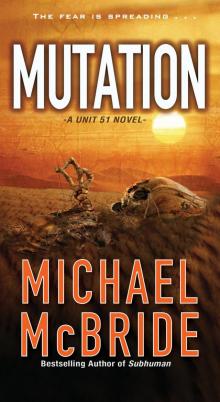 Mutation
Mutation Trail of Blood
Trail of Blood Brood XIX
Brood XIX The Fall
The Fall Snowblind II: The Killing Grounds
Snowblind II: The Killing Grounds Bloodletting
Bloodletting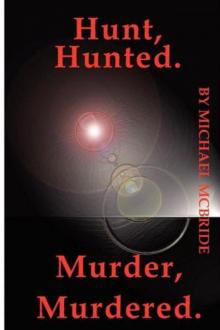 Hunt Hunted, Murder Murdered
Hunt Hunted, Murder Murdered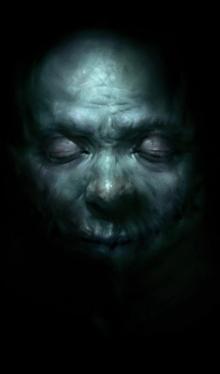 The Bloodspawn
The Bloodspawn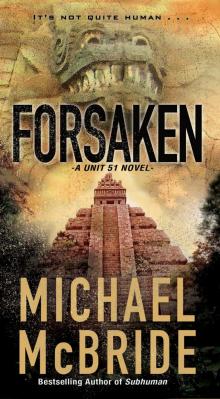 Forsaken
Forsaken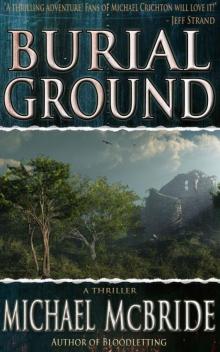 Burial Ground
Burial Ground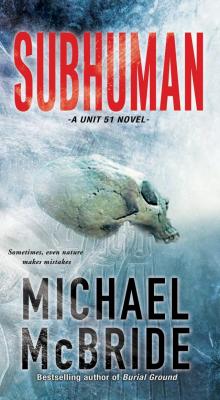 Subhuman
Subhuman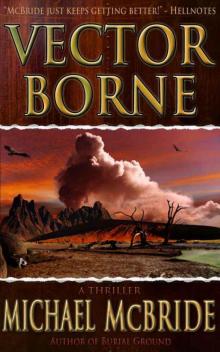 Vector Borne
Vector Borne Ancient Enemy
Ancient Enemy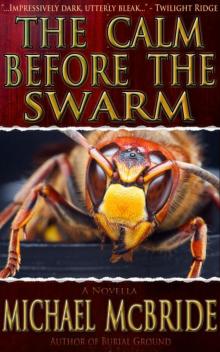 The Calm Before The Swarm
The Calm Before The Swarm Innocents Lost
Innocents Lost Condemned: A Thriller
Condemned: A Thriller